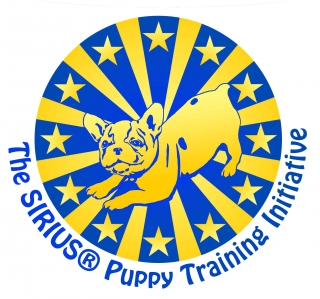VETERINARIANS

Veterinary practitioners play such an important role in the wellness of puppies and they have “access” to puppy owners at such a crucial time in the puppy’s life. Consequently, the success of any puppy raising initiative absolutely depends on support from the veterinary profession. Veterinarians see nearly all puppy owners when their pups are eight-weeks old — the optimal time for an educational “vaccination”. Additionally, the veterinary profession is the most respected in the animal world; clients believe what you say and so, please implore them to maintain errorless housetraining and chewtoy-training (which also prevents excessive barking and separation anxiety), to continue safely socializing their puppy with people at home so that the puppy does not become fearful or aggressive as an adult, to contact a trainer right away for an in-the-home visit and to register for puppy classes. If you do not refer to a preferred trainer, suggest that your clients try the APDT Dog Trainer Search.
Much of the information for prospective and new puppy owners is available for free download as two of my eBooks — BEFORE You Get Your Puppy and AFTER You Get Your Puppy. Please customize the books with your clinic name and contact information and then email them to your clients and to your colleagues worldwide, urging them to forward the books to every doggy person that they know. Alternatively, you have my permission to burn the free eBooks and 16 Behavior Blueprints to a CD for duplication and distribution in puppy packets.
Most of an adult dogs temperament and behavioral habits (both good and bad) are forged during early puppyhood. Preventing predictable behavior problems (housesoiling, destructive chewing, excessive barking, home-alone misbehavior), plus separation anxiety and handling problems is the most urgent item on a puppy’s educational agenda — starting hopefully at the breeder’s kennel but most certainly, the very first day the puppy comes home. Socializing puppies to people is the second most important item on the puppy’s developmental agenda (second only to learning bite inhibition). Puppies simply must be well-socialized to people before they are three months old — well before they attend puppy classes. Whether or not you decide to recommend puppy classes, please advise your clients of the urgency of socializing their puppies to people in the safety of their own home. (Outdoor shoes, of course, should remain outside.)
Most important, during the puppy’s first visits to the clinic, look out for early warning signs that a bite is likely in the future. If any puppy/dog acts shy or fearful by backing off or ducking its head when reached for, or struggling when held — insist that the owner seeks help from a trainer immediately. The puppy is stressed and will quickly become MUCH more difficult to handle on subsequent visits. Lack of confidence and fearfulness often lead to aggression.
Socialization vs. Risk of Disease?
Veterinarians are in the business of health care — both physical health and behavioral/mental health care, comprising not only diagnosis and treatment but also, preventative health care. Preventing behavior, temperament and training problems is as important as preventing physical ailments and organic disease.
All veterinary practitioners are understandably concerned about the risk of disease and some veterinarians are concerned about the safety of puppies attending classes. Whereas no household environment is 100% safe from parvovirus, indoor puppy classes are comparatively safe — any housetraining accidents are immediately cleaned up and the impervious floor zapped with bleach. Of course, it would be sound advice to recommend that owners carry younger puppies into class as one would insist that clients carry young puppies from car to examination table in the veterinary clinic. Two of the most hazardous places for an unvaccinated puppy are on the ground in a veterinary clinic parking lot and on the waiting room floor.
There is no urgency for a young puppy to frequent public areas that may have been contaminated by non-vaccinated dogs. However, there is an extreme urgency for young puppies be taught to enjoy being handled and to develop bite inhibition by socializing with people safely at home, or in puppy class.
The limited potential disease risk of attending puppy classes are best outlined in the following papers and position statements.
AVSAB Position Statement on Puppy Socialization
Puppy Vaccination and Early Socialization Should Go Together
Most illuminating is the final question posed to the four participants (Drs. Ian Dunbar, Brenda Griffin, Kersti Seksel and Jennifer Messer) in Dr. Kathryn Meyer’s Veterinary Medicine’s Roundtable Discussion on Early Puppy Socialization Classes: Risk vs. Benefits
“…have you had reason to believe infectious diseases may have been spread as a consequence of the class?” All participants answered, ”No” and at the time of the interview, they had been teaching classes from between 10 and 27 years. My answer is still “No” after 30 years of classes. In fact, if I were still in veterinary practice, I would make attendance at puppy classes mandatory for all new puppy clients because I prefer to handle and examine adult dogs that are confident, calm and friendly rather than fearful, wriggly, or aggressive.
Puppy Classes
Many people think that puppy classes are for socializing puppies. Actually, puppy classes are a safe forum: 1. For already socialized and easily handled puppies to continue off-leash socialization and being handled by people — especially children, men and strangers; 2. For puppies to quickly revamp their social savvy with other puppies and so, develop bite inhibition (a soft mouth); and 3. For people to learn to teach reliable off-leash control*, so that the puppies respond to commands promptly and willingly even when distracted and at a distance. (*People live with dogs off-leash at home.) To accomplish this, a puppy class needs to be taught off-leash with the ongoing play session regularly interrupted by numerous short training interludes and handling sessions.
For more info please read, "What Makes A Good Puppy Class?" by Dr. Ian Dunbar.
Benefits for Veterinarians?
There are just so many. Behavior has a crucial impact on the veterinary profession. Mannerly, well-behaved and good-natured dogs allow practitioners to get on with their jobs. Behavior, temperament and training problems waste time, lose money and generally make life unpleasant for the practitioner, the owner and the animal client.
Temperament problems consume time. Wriggly and fearful dogs take much longer to examine and restrain and examining aggressive dogs can be even more time-consuming and sometimes dangerous. Moreover, routine clinic visits can be extremely stressful for dogs that do not enjoy being restrained and examined by strangers in a strange place.
Simple, predictable and preventable behavior problems are the #1 reason why people surrender dogs to shelters — the owners lose their dog, the dogs lose their quality of life and you lose animal clients. On the other hand, owners are more likely to keep their dog if they have attended a puppy training class.
Consequently, it makes sense to ensure your new puppy-owning clients receive the two eBooks and that you strongly urge them: 1. To select a trainer for an immediate in-the-home visit to give advice regarding errorless housetraining, chew-toy training and home-alone preparation; 2. To invite numerous family, friends and neighbors to the home to socialize and handle the puppy; and 3. To register for puppy class before their puppy is 18 weeks old.




